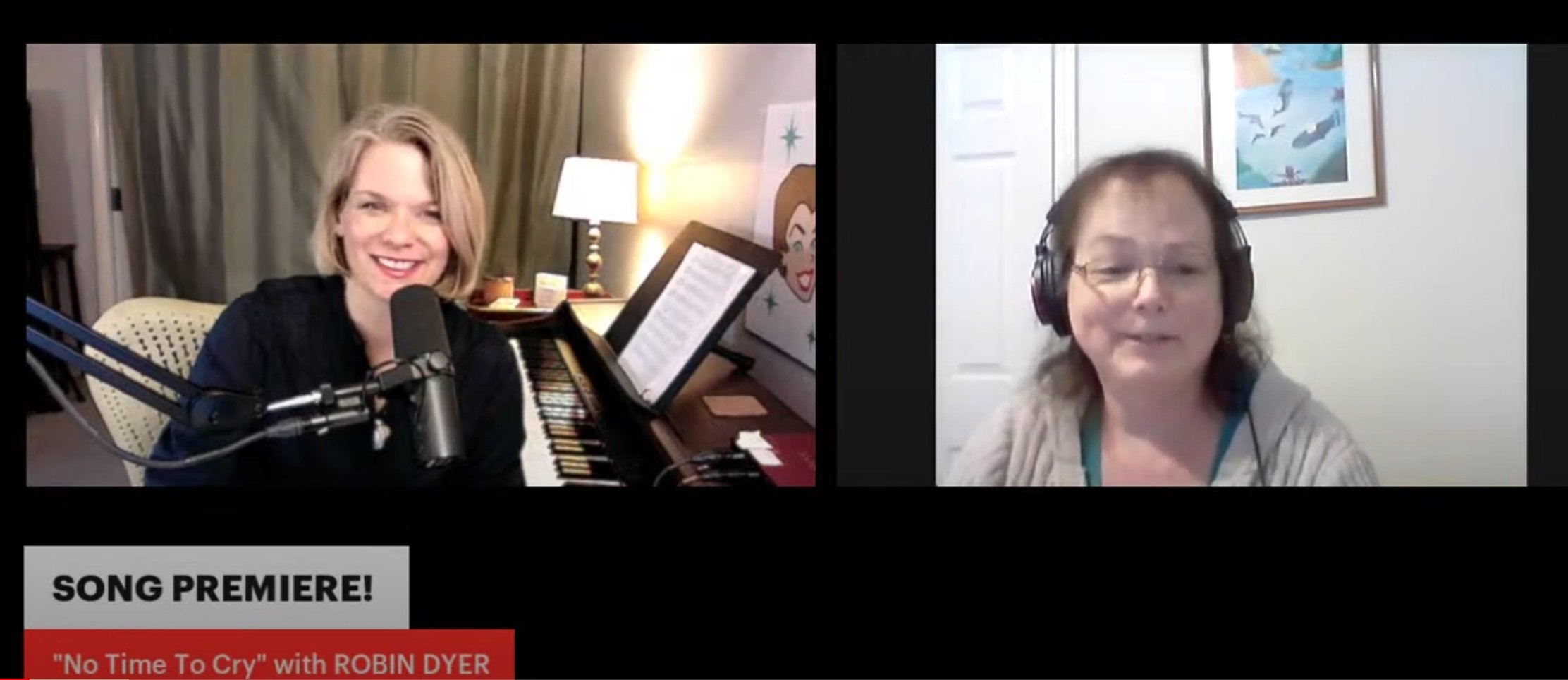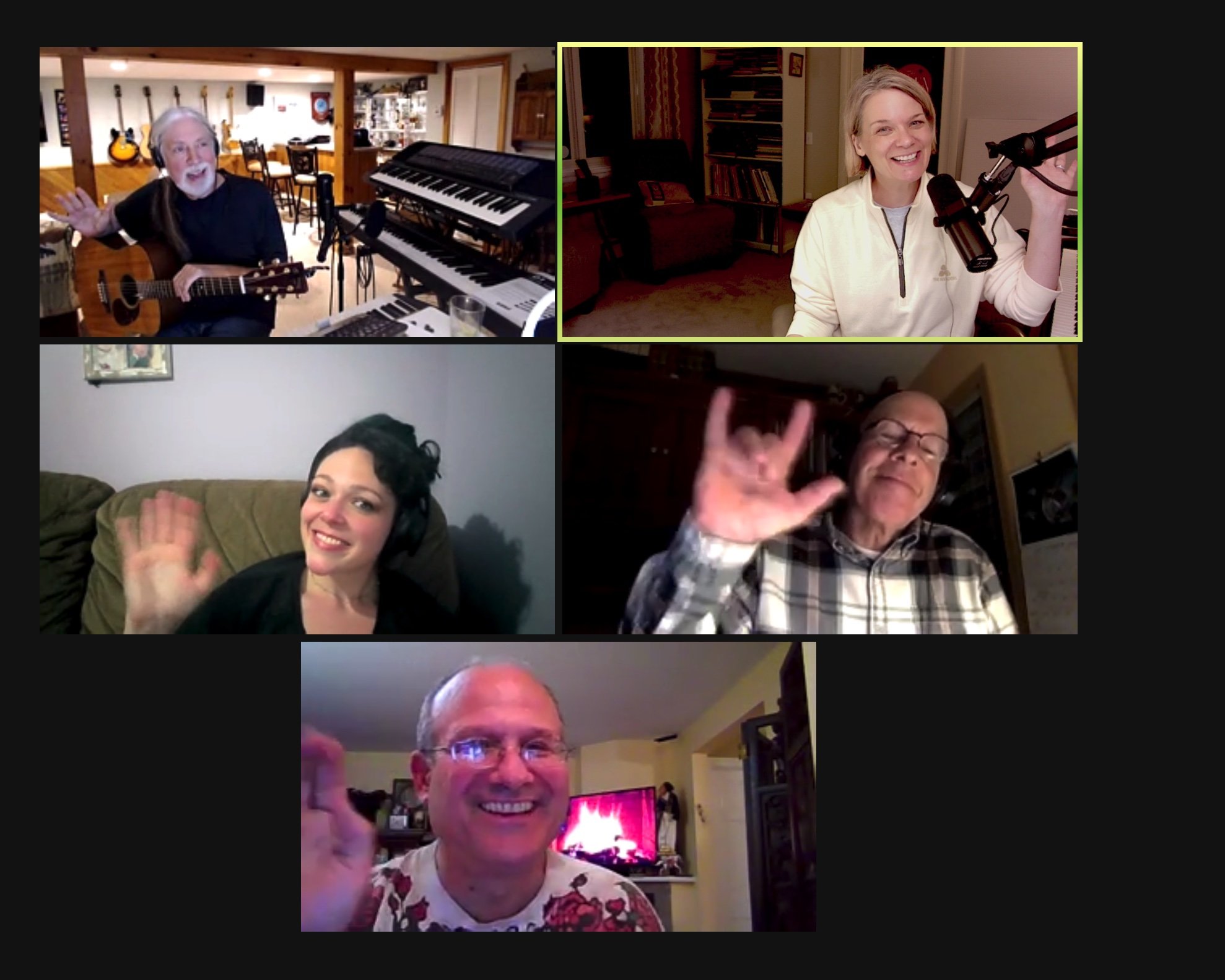It's true. I have perfect pitch. I can look at a piece of music and hear it playing in my head, in the correct key. In rehearsal you don't have to play pitches for me, because I already know where to begin. If you play a B flat on the piano, I can tell you it's B flat without peeking. If a siren is wailing I can tell you what pitch it's on. If we're listening to music, you can ask me what key they're playing in and I will tell you and I will be right. You can test your pitch ability, too. (I just tried it. 12/12. I've still got it.)
We don't know for certain what causes perfect pitch, but it may have something to do with the area of the brain that processes language -- somehow my language and my listening may have been tied very close together, so I was able to label sounds with ease. There is also probably a genetic factor -- I come from a musical family. We're not the Bachs, but we are musical. I was sitting at the piano, playing melodies by ear, at age 4. (My teenage son has always had excellent pitch accuracy. He always sings a melody in the correct key, even when he has not been given a starting pitch. But, he can't accurately name pitches out of the blue. I wonder if that skill will improve as he gets older.)
When I was little, I thought that perfect (or absolute) pitch developed from taking piano lessons, which I started at age 5. My voice teacher, Prof. Paul Hickfang, was the first to "diagnose" me, when I was 13. We met for lessons on Saturday mornings, in the choir room of his church in Linworth, Ohio. He sat at the upright piano and I stood on the opposite side. I was learning "O Mio Babbino Caro" and we had stopped to go over a phrase. He played a piano key to indicate where I should continue singing, and I asked, "You mean on the A-flat?" He stopped and looked at me. "How did you know that was an A-flat?" I said, "It just is. Doesn't everyone know that?" He smiled slowly. "No, Eden, everyone doesn't know that. But my wife does." His wife Laura Lee also has perfect pitch. He played a few random notes all over the keyboard, and I named each one instantly.
It's been very helpful in choral situations. I can provide pitches for all parts faster than you can extract your pitch pipe from your pants pocket. I can labor mightily to keep my section from going flat, by my sheer pitch-itude. I can quietly help singers find their way out of the tough spots. But sometimes they're so flat, I just have to go with 'em. (I was a pitch bitch in my earlier years, bemoaning the effort of staying in tune as the rest of the section sagged. I hope I'm nicer now.)
Absolute pitch can sometimes be a bit aggravating. Transposing on sight is difficult for me, because I "hear" the music in one key while I'm trying to sing it in another. If I have the chance, I'll write in the letter names to make sure I don't start singing the "wrong" pitches. (My freshman roomie completed music theory homework while listening to jazz on the CD player, which astonished me; I had to have silence so I could accurately "hear" the music I was reading.) Once I know a piece, it's easier to transpose.
In high school music theory class, we had a test on melodic dictation -- it's like a spelling test for musicians. We were expected to listen to a melodic line and correctly write the music on staff paper. To be helpful, Dr. Keller told us the first note was a C. He played a cassette tape with several melodic examples, that were all supposed to start on C. But . . the cassette player's batteries were almost dead, so the tape was playing slow, and the first pitch was not a C, it was a B-flat. I knew it was a B-flat. I looked up, bewildered. How was I supposed to write what I was hearing when I knew I was hearing something different than what everyone else was hearing? I looked around the room. All the heads were bowed over the papers, but John Justice was looking up, too, and shaking his head. We nodded knowingly, then just shrugged and tried to figure out how to write what was expected, instead of what we were hearing. Perfect pitch pals.
Perfect pitch affects the way I teach music theory. I understand why scales are taught as a series of half and whole steps, and I understand why Guido d'Arezzo developed solfege, but I don't need either system to secure a pitch. I know they help everyone else more than they help me, so I use them and teach them. I can quickly identify intervals. I just know when a minor 7th is a minor 7th, but I have had to search for ways to explain this to a group of kids with regular ears.
Sometimes I think it would be fun to have "absolute car repair" or "absolute ultramarathon stamina" as a God-given gift. But I have perfect pitch, as did Mozart, Hendrix, Beethoven, Nat King Cole, and Chopin. Stevie Wonder has it too -- so that's how he finds his way around the keyboard!
Apparently some "absolutists" are so perfect, they can hear pitch in cycles per second. I can't do that, and I'm glad. I think that would be torture, to hear 20 violinists at 20 slightly different pitches.
By the way, Unforgettable is in F major. Watch the first 20 seconds of the clip, and you can tell that Cole just knows it.





















